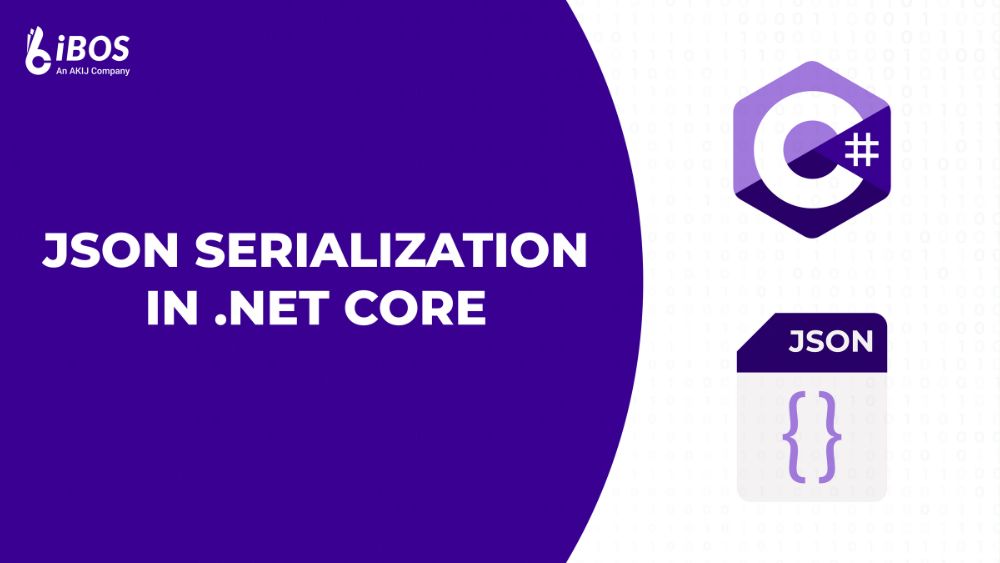JSON Serialization is converting a .NET object into a JSON (JavaScript Object Notation) format, a lightweight data-interchange format widely used for data transfer between web applications. In .NET Core, JSON Serialization is an essential component of many web applications, particularly those that use API controllers to transmit data over the internet.
This comprehensive guide will explore the basics of JSON Serialization in .NET Core, including its importance, working with serialization attributes and options, and advanced techniques for serializing complex data types. By the end of this guide, you will have a solid understanding of JSON Serialization in .NET Core and be able to implement it effectively in your web applications.
Basic Understanding of JSON Serialization
The process of serializing a.NET object makes it possible to send it over the Internet in a format that is simple to read and understand. In the context of web applications, serialization is commonly used to convert .NET objects into JSON format, which can be easily consumed by other applications.
There are two types of serialization: Binary Serialization and Text Serialization. Binary serialization is used to serialize .NET objects into binary format, which can be transmitted over a network or stored in a file. Text serialization, on the other hand, is used to serialize .NET objects into a human-readable format, such as XML or JSON.
JSON Serialization is a type of text serialization that is used to convert .NET objects into JSON format. It is a popular choice for web applications due to its lightweight nature and easy readability. In the next section, we will explore how to work with JSON Serialization in .NET Core.
Working with JSON Serialization in .NET Core
ASP.NET Core provides several options for working with JSON Serialization, including serializing data in API controllers, Razor views, and SignalR hubs.
Serializing Data in API Controllers:
API controllers are commonly used in web applications to transmit data over the internet. In ASP.NET Core, you can use the built-in JsonSerializer class to serialize .NET objects into JSON format. Here is an example of serializing data in an API controller:
[ApiController]
[Route("[controller]")]
public class MyController : ControllerBase
{
[HttpGet]
public IActionResult Get()
{
var data = new { Name = "John", Age = 30 };
return new JsonResult(data);
}
}In this example, the Get() method returns an object of anonymous type, which is then serialized into JSON format using the JsonResult class. The serialized JSON data is returned as the HTTP response.
Serializing Data in Razor Views:
Razor views are commonly used in ASP.NET Core web applications to render HTML pages. You can also use Razor views to serialize .NET objects into JSON format. Here is an example of serializing data in a Razor view:
@model MyViewModel
<script>
var data = @Html.Raw(Json.Serialize(Model));
</script>In this example, the Json.Serialize() method is used to serialize the Model object into JSON format, which is then assigned to a JavaScript variable called “data”. The Html.Raw() method is used to output the serialized JSON data as raw HTML.
Serializing Data in SignalR Hubs:
SignalR is a popular library for building real-time web applications. You can also use SignalR hubs to serialize .NET objects into JSON format. Here is an example of serializing data in a SignalR hub:
public class MyHub : Hub
{
public async Task SendMessage(MyMessage message)
{
var json = JsonSerializer.Serialize(message);
await Clients.All.SendAsync("ReceiveMessage", json);
}
}In this example, the JsonSerializer class is used to serialize the message object into JSON format, which is then broadcasted to all connected clients using the SendAsync() method.
By using these techniques, you can easily serialize .NET objects into JSON format in ASP.NET Core web applications.
Best Practices of JSON Serialization
To ensure the effective use of JSON Serialization in .NET Core, it is important to follow some best practices:
Use Appropriate Data Structures
To optimize the performance of JSON Serialization, it is recommended to use appropriate data structures. For instance, you can use simple data types such as integers and strings instead of complex objects. This will reduce the amount of data that needs to be serialized and improve the overall performance.
Optimize Serialization for Performance
To optimize the performance of JSON Serialization, you can use the following techniques:
- Use the JsonConverters API to customize the serialization process and handle custom data types.
- Use the [JsonIgnore] attribute to exclude specific properties from being serialized.
- Use the [JsonPropertyName] attribute to specify a different name for a serialized property.
By using these techniques, you can improve the performance of JSON Serialization and reduce the amount of data that needs to be transmitted over the internet.
Handle Serialization Errors Gracefully
It’s essential to gracefully handle serialization errors to avoid potential issues in the web application. Circular references, null values, and formatting issues are a few common errors that can happen during serialization.
Using try-catch blocks, you can handle serialization errors and send the client the proper error messages. The JsonSerializerOptions class also allows you to specify options for handling errors, such as whether to ignore null values or include them in the serialized data.
By following these best practices, you can ensure effective use of JSON Serialization in .NET Core and optimize the performance of your web application.









